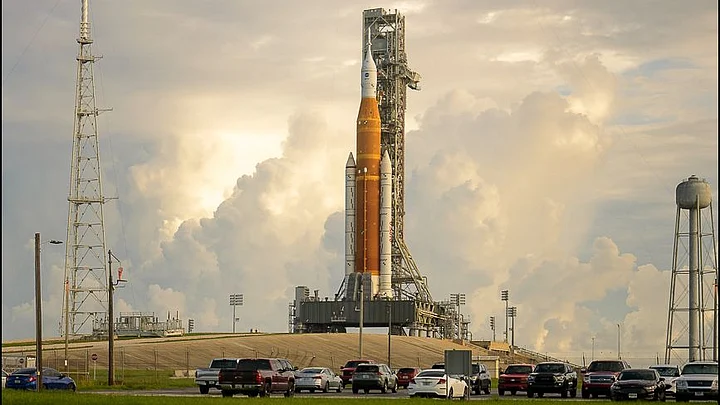The National Aeronautics and Space Administration (NASA) on Saturday, 1 September, announced that it was postponing the launch of its highly-anticipated moon mission, Artemis 1, for a second time due to a fuel leak.
The space agency further indicated that it would not attempt the launch again during its current window of opportunity, which ends early next week, news agency AFP reported.
Associate administrator for Exploration Systems Development addressed a press conference on Saturday, saying that the launch, which is determined by the position of the Earth and Moon, was "definitely off the table."
As per NASA, the next possible launch windows are between 19 September to 4 October, and 17 October to 31 October.
Artemis 1 was originally expected to be launched on 29 August, but the event had previously been postponed to 3 September.
"The Artemis I mission to the moon has been postponed. Teams attempted to fix an issue related to a leak in the hardware transferring fuel into the rocket, but were unsuccessful," the aeronautics body said in a tweet earlier in the day.
What Happened?
Hours before the announcement of the postponement, NASA had shared that the rocket had sprung a leak, as the launch team began fuelling it for lift-off. NASA had said that launch controllers had resumed the flow of liquid hydrogen to the core stage.
"Launch controllers have resumed flow of liquid hydrogen to the core stage after warming up a quick disconnect in the engine section where a hydrogen leak was detected in the cavity between the ground and flight side plates of the quick disconnect. Teams warmed up the quick disconnect to attempt to reseat it and set a proper seal," NASA said in a statement issued earlier on Saturday.
NASA had been scheduled to make a second attempt at launching its new moon mission at 11:47 pm (IST) on Saturday, five days after it failed to do so due to "technical issues."
First Launch Attempt
NASA's first Artemis launch attempt on 29 August had met with failure after data showed that one of the rocket's main-stage engines did not reach the required pre-launch temperature for ignition.
Officials from the space agency said that they believed a faulty sensor in the rocket's engine had caused the problem.
To tide over the problem, mission managers were to begin their engine-cooling process around 30 minutes earlier in the launch countdown, Reuters reported NASA's Artemis launch director Charlie Blackwell-Thompson as saying.
The mission aims to put the 5.75-million-pound rocket in a strenuous demonstration flight that would push its limits, before NASA considers it to be reliable enough to have astronauts on board the SLS.
The last time human beings walked on the moon was in 1972, when a two-man Apollo 17 team, comprising Gene Cernan and Harrison Schmitt, successfully landed on it.
(With inputs from Reuters.)
(At The Quint, we question everything. Play an active role in shaping our journalism by becoming a member today.)
